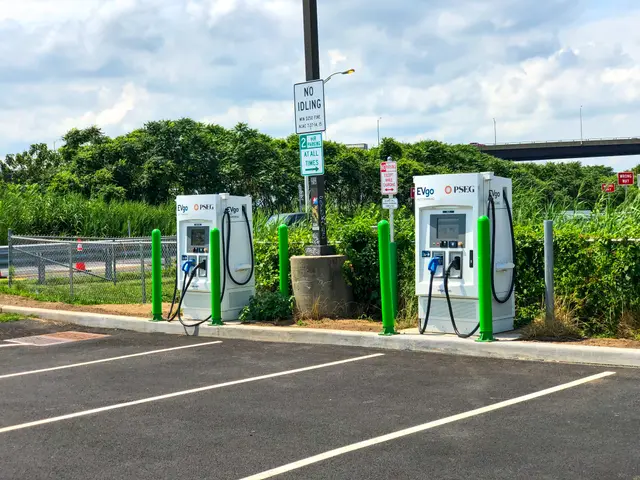Understand the video doorbell regulations in the United Kingdom: Crucial legal aspects to be aware of.
Smart video doorbells, a common household fixture for many, are bound by guidelines that dictate their use in the UK. With one in five Brits owning a video doorbell by 2022 (as per research by Consumer Intelligence), it's essential to understand how to use them legally and responsibly.
For home security enthusiasts, video doorbells are an integral part of their home security setup. However, it's crucial to remember privacy laws when integrating such technology. According to Anthony Neary, a security expert at Safe.co.uk, if your video doorbell captures images or audio beyond the property boundary, it might violate privacy laws set forth by the Human Rights Act, UK GDPR, and DPA.
One aspect to consider is Article 8 of the Human Rights Act, which deals with the right to respect for private and family life. If your video doorbell captures detailed footage of a neighbor's garden or private property, it might fall under this Act. The GDPR and DPA dictate that you must balance your need for security with an individual's privacy rights when capturing their data. Your recordings should only be for what is necessary and should not be used for any other purpose. Additionally, they should be securely stored.
To avoid legal troubles, there are steps you can take. For instance, tailoring your camera's field of view to only capture the necessary areas, like doorways, driveways, or places where packages are left. Smart doorbells come with privacy settings, such as "privacy zones," that let you block out parts of the image beyond your property line. Opting for live view mode during certain hours or when you are home can also reduce unnecessary recording.
It's also essential to regularly delete old footage and secure your cloud storage or app access using strong passwords, ideally with two-factor authentication. Being transparent and placing a clear sign by your front door or gate stating that a video doorbell is in operation can help alleviate neighbor concerns.
If neighbors express concerns, it's best to approach them in a friendly and empathetic manner. Let them know about the intended usage of your video doorbell, such as monitoring for peace of mind or package theft. Show them the video feed on your phone, if possible, to address any anxiety stemming from the lack of knowledge of what is being recorded. Be reasonable about the footage your device captures and adjust the camera position or settings if necessary.
Understanding the rules for video doorbell usage is crucial for avoiding regulatory or legal action initiated by affected individuals. By following these guidelines, you can enjoy the benefits of video doorbells responsibly and legally.
- For responsible usage of video doorbells in the UK, it's vital to consider privacy laws, as exceeding property boundaries can violate the Human Rights Act, UK GDPR, and DPA.
- Article 8 of the Human Rights Act protects the right to respect for private and family life, making it important to avoid capturing extensive footage of neighbor's gardens or private properties with video doorbells.
- To balance security needs with privacy rights, ensure video recordings are only for necessary purposes and are securely stored, while using privacy settings like "privacy zones" on smart doorbells.
- To avoid legal troubles, tailor the camera's field of view to cover essential areas like doorways, driveways, or parcel drop-off spots, and opt for live view mode during specific hours or when at home.
- Regularly deleting old footage, securing cloud storage or app access with strong passwords and two-factor authentication also plays a crucial role in ensuring legal and responsible use of video doorbells.
- With transparency and a clear sign indicating the use of video doorbells, homeowners can alleviate neighbor concerns and approach them in a friendly manner to explain the device's intended usage and address any anxiety stemming from lack of knowledge.








